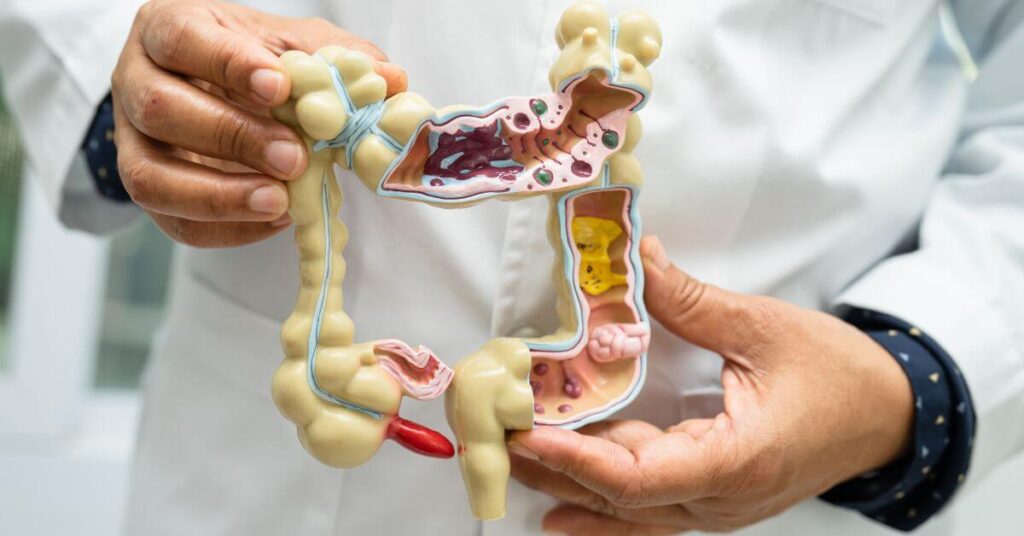More recently, there has been an increased demand and interest for help with chronic inflammation and autoimmune diseases. And, the traditional approach of pharmaceuticals or the recommendation to “de-stress” has not satisfied the consumer. As a result, there has been a growing interest in the role of food in managing chronic inflammation and autoimmune conditions. Two popular dietary approaches that have gained attention for their potential benefits in this area are the Anti-inflammatory Diet and the Autoimmune Protocol (AIP). Both of these diets focus on reducing inflammation in the body, but they have unique differences in their approach and guidelines. In this blog post, we will take a closer look at the Anti-inflammatory Diet vs the Autoimmune Protocol diet.

Understanding The Anti-Inflammatory Diet
The core of the Anti-inflammatory Diet lies in its focus on incorporating whole foods that are naturally rich in nutrients known to combat inflammation. This dietary approach prioritizes a rich intake of fruits and vegetables, which are sources of antioxidants and phytochemicals, alongside whole grains that provide essential fiber. Healthy fats, particularly those containing omega-3 fatty acids found in fish, like salmon and in flaxseeds, play a crucial role in moderating the body’s inflammatory response. Lean proteins, too, are essential, as they support muscle repair and growth without contributing to inflammation.
The Anti-Inflammatory Diet advocates for minimizing intake of foods that can exacerbate inflammation, such as processed items, those high in sugar, and trans fats. By doing so, it aims not just to mitigate the risk of chronic inflammation but also to support overall physical health and well-being. The inclusion of foods abundant in antioxidants and phytonutrients is also strategic, helping to neutralize free radicals in the body that can cause cellular damage and inflammation.
Moreover, the Anti-inflammatory Diet encourages the consumption of a diverse range of foods to ensure a broad spectrum of nutrients. This nutrient diversity helps support the body’s natural healing processes and immune function by supplying a complete profile of vitamins and minerals.

Exploring the Autoimmune Protocol (AIP)
The Autoimmune Protocol, often referred to as AIP, takes a stringent approach to diet with the aim of alleviating symptoms associated with autoimmune disorders. By eliminating a comprehensive list of foods believed to provoke inflammation and immune response, the AIP goes beyond the general anti-inflammatory diet principles. It targets the removal of grains, dairy, legumes, nightshades (such as tomatoes and peppers), eggs, nuts, seeds, and any processed foods. Instead, it promotes a diet rich in vegetables (excluding nightshades), lean meats, certain seafood, fermented foods, and healthy fats, focusing heavily on nutrient density to support the body’s healing. AIP also emphasizes the importance of a healthy gut, suggesting that a compromised gut barrier could contribute to autoimmune reactions. To support gut health, it encourages the consumption of bone broths and fermented foods while stressing the importance of lifestyle adjustments. These include managing stress levels and ensuring adequate sleep, both critical components of the protocol aimed at reducing inflammation and aiding in the restoration of immune function.
Key Differences Between the Anti-Inflammatory Diet vs Autoimmune Diet
A pivotal distinction between the Anti-inflammatory Diet vs the Autoimmune Protocol diet (AIP) hinges on their dietary restrictions. The Anti-inflammatory Diet champions a balanced approach, focusing on a broad intake of whole, nutrient-rich foods that naturally reduce inflammation. It allows for a wider variety of food groups, making it somewhat easier to follow and integrate into a diverse array of lifestyles. On the other hand, the AIP is characterized by its rigorous elimination of numerous food groups. This exclusion list is designed to minimize potential immune triggers. The AIP protocol is designed to mitigate autoimmune reactions by establishing a healthy gut microbiome. This leads to a strong advocacy for foods that support gut integrity which are less emphasized in the Anti-inflammatory Diet. Both protocols require instruction to be implemented effectively. I have witnessed many people who experience worsening symptoms or no relief with diet intervention because they are not implementing the diet correctly. The primary issue is a restricted diet that leads to nutrient deficiencies. It is important to request help from a registered dietitian so that you may develop the skills to maintain the diet effectively and reap the reward of the intervention.
Similarities and Shared Goals of Both Protocols
While the Anti-inflammatory Diet and the Autoimmune Protocol (AIP) may differ in specifics, their core objectives align closely, aiming to mitigate chronic inflammation and bolster immune health. Central to both approaches is the emphasis on whole and unprocessed foods. Each diet encourages a nutritious palette of vegetables, select fruits, and lean proteins. This goal of this combination of foods is to reduce inflammation and promote immune balance. Vitamins, minerals and antioxidants are the trifecta of immune health. Emphasizing healthy fats, especially those rich in omega-3s, further illustrates their shared focus on inflammation reduction and optimal health.

In addition to dietary guidelines, these protocols underline the importance of a well-rounded lifestyle to support their objectives. Regular exercise, stress management techniques, and prioritizing sleep are recommended components of both diets, acknowledging that diet is just part of the bigger picture of health. By adopting these holistic lifestyle changes, individuals following either diet can work towards the shared goal of improved health and well-being.
Potential Health Benefits and Scientific Evidence
Emerging research underscores the positive impact of both the Anti-inflammatory Diet and the Autoimmune Protocol on health markers related to inflammation and autoimmune diseases. Notably, these diets have been linked to reduced symptoms in conditions like rheumatoid arthritis, psoriasis, and inflammatory bowel diseases, among others. This scientific backing stems from the principle that food can influence the body’s inflammatory processes and immune system responses. For instance, the inclusion of omega-3 fatty acids, abundant in certain fish and seeds, is associated with decreased inflammation levels. Similarly, the reduction or elimination of gluten and dairy—common in both protocols—has been observed to alleviate gastrointestinal distress and other autoimmune symptoms in susceptible individuals.

Additionally, the emphasis on gut health, particularly with the Autoimmune Protocol, is supported by studies highlighting the gut’s role in immune function and inflammation. The consumption of bone broths and fermented foods, rich in probiotics, is believed to strengthen the gut barrier and reduce autoimmune reactions. Although comprehensive research is still ongoing, the anecdotal and preliminary scientific evidence points toward these diets’ effectiveness in managing autoimmune and inflammatory conditions, showcasing their potential as powerful tools in a holistic health strategy.
Challenges and Considerations for Adhering to These Autoimmune-Friendly Diets
Navigating the complexities of both the Anti-inflammatory Diet and the Autoimmune Protocol requires more than just a casual commitment to eating healthier. One of the most significant challenges participants face is the shift away from common dietary habits, particularly the reliance on convenience foods and those laden with added sugars and unhealthy fats. The level of vigilance needed to avoid restricted foods can be daunting, as it often involves scrutinizing ingredient lists and being mindful of potential hidden sources of triggers.
For individuals on the AIP diet, the initial phase is especially restrictive, which can lead to feelings of dietary deprivation and social isolation during meals with family or friends who are not following the same protocol. The psychological impact of such dietary limitations should not be underestimated, as it can affect motivation and the overall success of adhering to the diet.

Furthermore, the need for meticulous meal planning and preparation can be a barrier for those with busy lifestyles or limited access to fresh, whole foods. Financial constraints may also come into play, as purchasing high-quality, organic ingredients recommended by both diets can incur a higher grocery bill.
Despite these hurdles, the journey towards improved health through diet is achievable with proper support, education, and a willingness to embrace new eating habits. Recognizing these challenges upfront and developing strategies to address them can pave the way for a smoother transition and sustainable adherence.

Personalizing Your Approach for Optimal Health
Adopting the Anti-inflammatory Diet or the Autoimmune Protocol requires careful consideration of your personal health situation and goals. Every individual’s body responds differently to certain foods and dietary changes, making it crucial to customize these protocols to fit your unique needs. Whether you’re managing an autoimmune condition, seeking to reduce inflammation, or simply aiming to improve your overall health, the right adjustments can make all the difference. Engaging with a registered dietitian can provide invaluable insights into how these diets can be adapted to support your health journey. They can offer guidance on how to modify food choices, address potential nutrient deficiencies, and incorporate lifestyle changes that complement your dietary efforts. Through a collaborative and informed approach, you can create a dietary plan that not only meets your health objectives but also fits seamlessly into your life.

